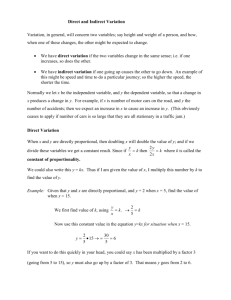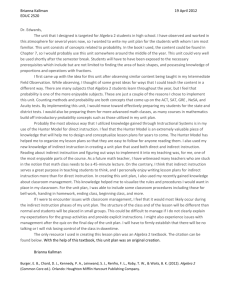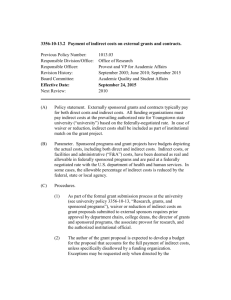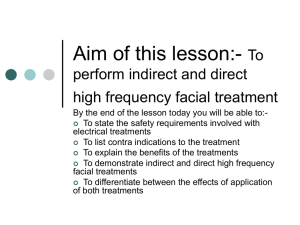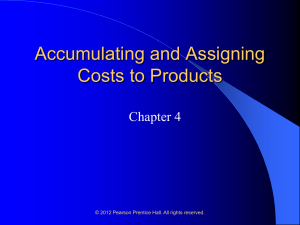Core Support - SD Bechtel, Jr. Foundation
advertisement
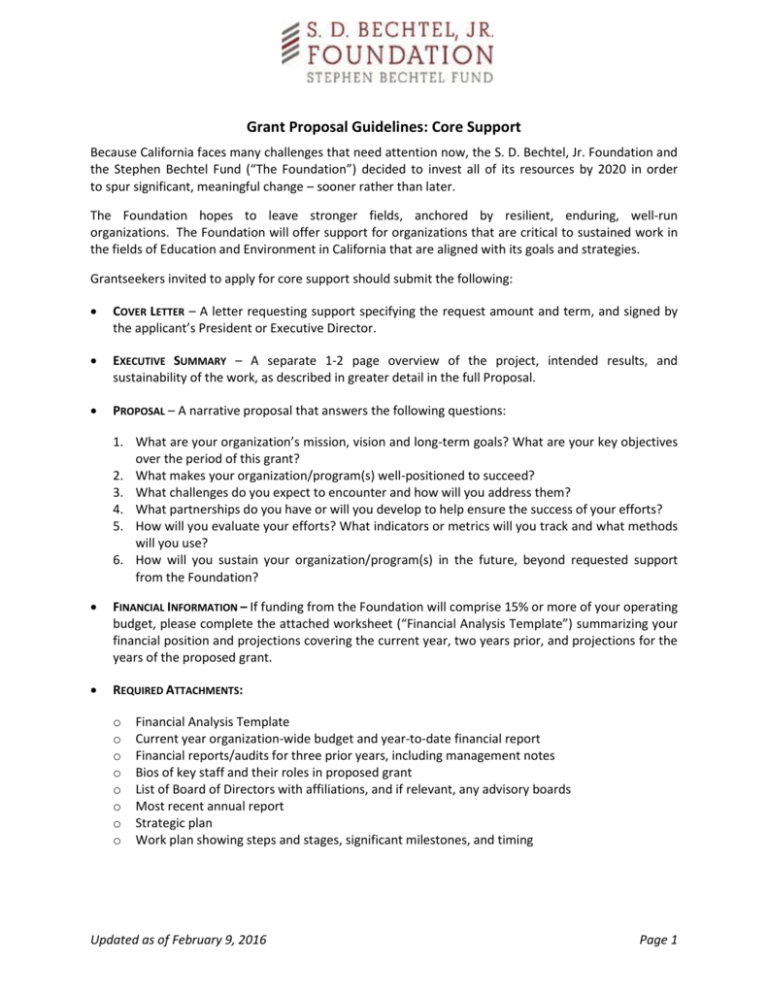
Grant Proposal Guidelines: Core Support Because California faces many challenges that need attention now, the S. D. Bechtel, Jr. Foundation and the Stephen Bechtel Fund (“The Foundation”) decided to invest all of its resources by 2020 in order to spur significant, meaningful change – sooner rather than later. The Foundation hopes to leave stronger fields, anchored by resilient, enduring, well-run organizations. The Foundation will offer support for organizations that are critical to sustained work in the fields of Education and Environment in California that are aligned with its goals and strategies. Grantseekers invited to apply for core support should submit the following: COVER LETTER – A letter requesting support specifying the request amount and term, and signed by the applicant’s President or Executive Director. EXECUTIVE SUMMARY – A separate 1-2 page overview of the project, intended results, and sustainability of the work, as described in greater detail in the full Proposal. PROPOSAL – A narrative proposal that answers the following questions: 1. What are your organization’s mission, vision and long-term goals? What are your key objectives over the period of this grant? 2. What makes your organization/program(s) well-positioned to succeed? 3. What challenges do you expect to encounter and how will you address them? 4. What partnerships do you have or will you develop to help ensure the success of your efforts? 5. How will you evaluate your efforts? What indicators or metrics will you track and what methods will you use? 6. How will you sustain your organization/program(s) in the future, beyond requested support from the Foundation? FINANCIAL INFORMATION – If funding from the Foundation will comprise 15% or more of your operating budget, please complete the attached worksheet (“Financial Analysis Template”) summarizing your financial position and projections covering the current year, two years prior, and projections for the years of the proposed grant. REQUIRED ATTACHMENTS: o o o o o o o o Financial Analysis Template Current year organization-wide budget and year-to-date financial report Financial reports/audits for three prior years, including management notes Bios of key staff and their roles in proposed grant List of Board of Directors with affiliations, and if relevant, any advisory boards Most recent annual report Strategic plan Work plan showing steps and stages, significant milestones, and timing Updated as of February 9, 2016 Page 1 IF AVAILABLE, PLEASE ALSO SUBMIT: o o o Theory of change and/or logic models for organization/program(s) Recent organization/program evaluations Fundraising plan, including list of recent and current major funders to your organization ADDITIONAL INSTRUCTIONS REGARDING PROPOSAL Please address all the questions in the guidelines through your proposal. Answers may be provided in a narrative form in a sequence and with headings of your choosing. If there are any questions or required attachments that don’t apply to your grant proposal, please discuss with your Program Officer before making modifications. Formatting guidance: o Please include page numbers and the date in the footer. o For the final proposal, take out mention of “draft” in the header, footer, document title, etc. o Please submit the proposal as a Word document, not a PDF. o Use standard serif or non-serif fonts (e.g., Calibri, Arial, Times New Roman) and standard font size (10-12). APPROVAL PROCESS The Foundation reviews invited proposals on a rolling basis. Once a submission is complete, decisions can be made within three months in most cases. Approved organizations will be asked to sign a Grant Agreement which will specify the grant payment schedule and reporting requirements. All documents (including but not limited to the final proposal, proposal attachments, the Grant Agreement, and reports) should be submitted through the Grants Portal. ADDITIONAL NOTES The Foundation does not provide endowment funding and does not make international grants. Also, please note that the Foundation does not earmark funds for lobbying activities as defined by the Internal Revenue Code and applicable Treasury Regulations or for reportable lobbying activities as defined by the California Political Reform Act or the federal Lobbying Disclosure Act. However, the Foundation does support broad, issue-based advocacy that is not tied to specific legislative or administrative action. Should you have any questions about what advocacy activities the Foundation will or will not support, please contact the Foundation. Updated as of February 9, 2016 Page 2 INDIRECT COSTS POLICY The S.D. Bechtel, Jr. Foundation offers funding for both direct and indirect costs for project and program support grants. Definitions Direct costs are those costs directly attributable to the design, planning, implementation, and evaluation of a project or program. Direct costs generally include: salaries and benefits of personnel who implement the project/program, related professional services, specific facilities, materials, and equipment as well as subcontracts or sub-grants, and other resources specifically required to carry out the project/program. The Foundation also funds, within reason, indirect costs associated with funded projects and programs. The Foundation defines indirect costs as general or administrative costs that are necessary to implement the funded project/program but that are not captured within the direct costs or the lineitem budget of the project itself. Funding indirect costs helps to ensure that the Foundation contributes to the true cost incurred by the grantee in carrying out the funded project/program. Indirect costs may include the following general and administrative costs: office supplies; bank, payroll processing or audit fees; liability insurance; rent; utilities; telecommunications and other IT (if not already included in the direct costs of a project/program); general equipment purchase or maintenance; and salaries and benefits of executive or administrative personnel who may not be directly engaged in the project. Indirect costs must be listed in the grant budget as a line item and identified as such. Exclusions The following are excluded from calculations of indirect costs: fees for subcontractors, re-granting, and/or major one-time capital expenditures, such as capital renovations or capital purchases. In addition, because core support grants support the organization as a whole, the Foundation does not offer a separate line item for indirect costs in connection with these grants. Rate and Calculations The Foundation allows for an indirect-cost allocation of up to 15%. The exact percentage will be determined during the grant review and development process. In many grants, the Foundation anticipates an indirect-cost allocation less than the maximum allowable rate. Calculations for indirect costs will be thoroughly reviewed by Foundation staff for accuracy and applicability to the project/program. Indirect costs should be contained in the total amount requested, which is generally agreed upon between your organization and Foundation staff when the proposal is invited. Indirect costs amounts are not considered in addition to the grant amount under consideration. SPONSORED PROJECTS POLICY Although the Foundation will not pay indirect costs on subcontracted amounts there is an exception for projects under the aegis of a legitimate fiscal sponsor. In those cases, grantees may expect the Foundation’s grant to cover a reasonable fiscal sponsor fee. According to the National Network of Fiscal Sponsors, the industry standard for comprehensive fiscal sponsor services is 10%. Updated as of February 9, 2016 Page 3

